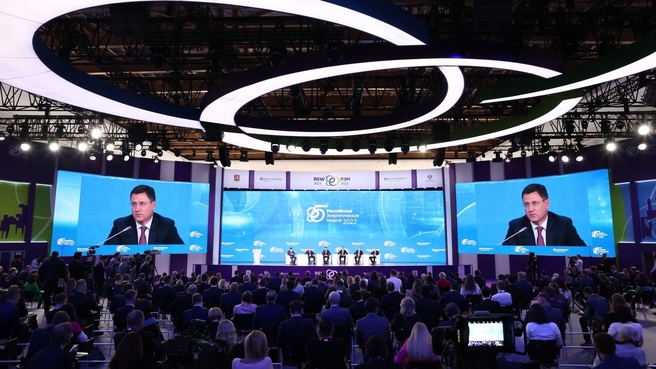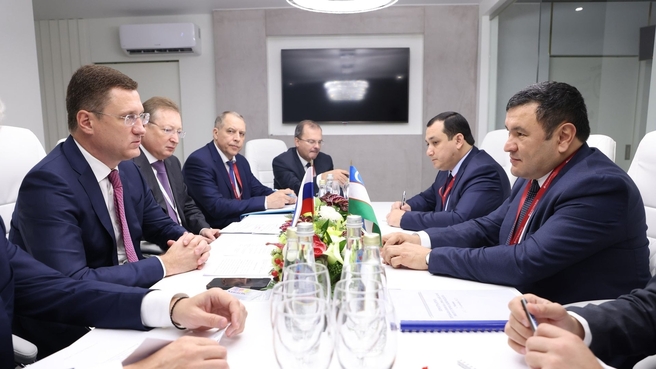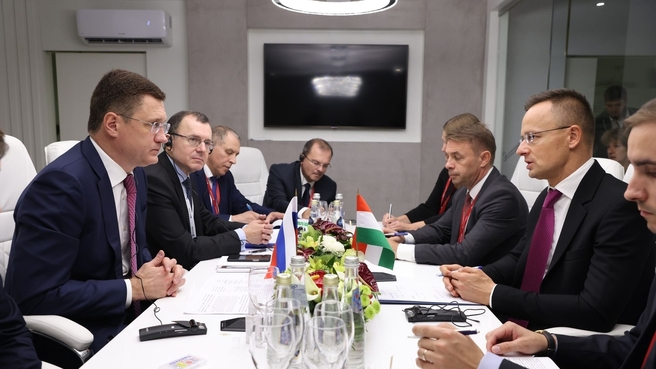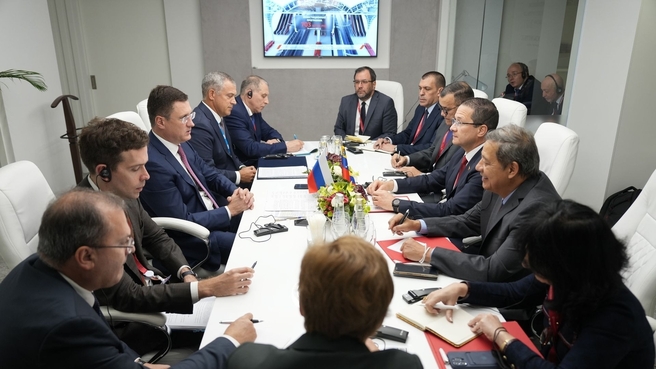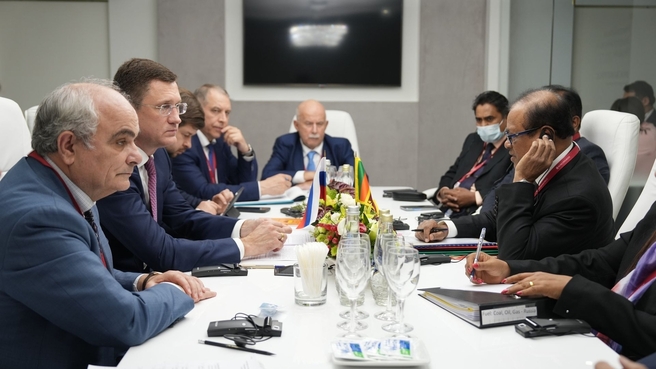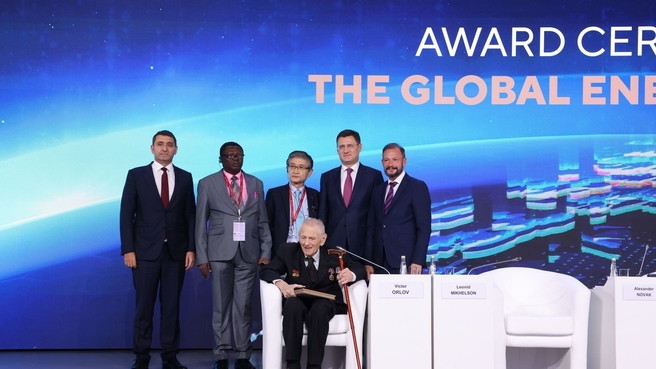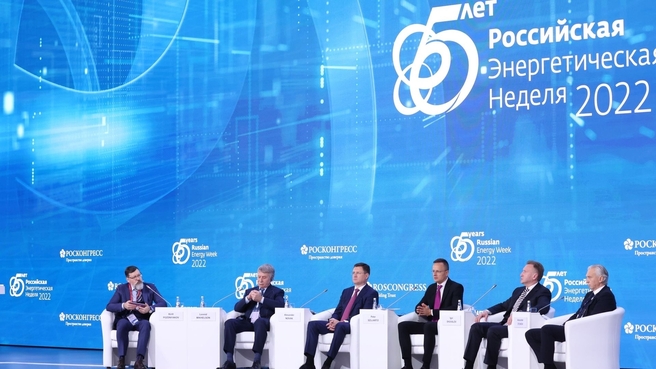The Deputy Prime Minister spoke at Russian Energy Week.
Alexander Novakspoke at Russian Energy Week
On the second day of Russian Energy Week, Deputy Prime Minister Alexander Novak outlined the routes for Russian energy supplies in the face of external pressure and long-term development plans in the new paradigm of import substitution. He also held a series of talks with international partners and awarded the Global Energy Prize to the winners.
Russia needs to develop the infrastructure to supply mineral resources to the markets where they are in demand, Alexander Novak said at the plenary session of the forum on 13 October. He stressed that European politicians are punishing their own people with their short-sighted decisions to reject the reliable supply of Russian energy resources, despite the demand for them. For example, Asia-Pacific countries, India and Pakistan, are interested in increasing their purchases of gas.
Russia plans to supply 22 bcm of gas to China through the Power of Siberia pipeline in 2023, and by 2027 to reach the planned level of 38 bcm, Alexander Novak said. According to him, Russia’s long-term plans include the development of LNG facilities, oil and gas refineries, a network of petrol and LNG filling stations, modernisation of refineries and expansion of port infrastructure to expand the geography of oil and petroleum product supplies.
Another area is the growth in the LNG production. “Today, we are producing 30 million tonnes owing to the Sakhalin-2 and Yamal-LNG projects, and plan to produce up to 64 million tonnes a year in the next few years. After 2030, we expect to bring this figure to 100 million tonnes a year, which will give us an additional opportunity to supply gas to customers in any part of the world,” Mr Novak said. After 2030, Russia will be able to deliver up to 100 billion cubic metres of gas eastward.
He also laid out such priorities as import substitution of LNG technology and the construction of a tanker fleet. Apart from exports, the emphasis is on the development of the domestic gas market – the connection of the Krasnoyarsk Territory, the Trans-Baikal Territory, the Irkutsk Region and Buryatia to the uniform gas transportation network will result in an additional 20 billion cubic metres of gas consumption in Russia. By 2030, Russia will produce over 764 billion cubic metres of gas, surpassing the figure for 2021.
At the meeting with Deputy Prime Minister and Energy Minister of the Republic of Uzbekistan Zhurabek Mirzamakhmudov, Mr Novak discussed the dynamic development of bilateral cooperation in energy. In part, they reviewed the plans for Russian business investment in building new oil refineries in Uzbekistan. Both officials confirmed the plans for developing advanced oil-and-gas, electric power and nuclear projects.
During talks with Mr Novak, Hungarian Minister of Foreign Affairs and Trade Peter Szijjarto expressed satisfaction with the stable Russian gas supplies under the signed contracts. The head of the Hungarian delegation noted the increased role of TurkStream as the main gas supply artery for Europe now that Nord Stream 1 has effectively ceased operating.
At Mr Novak’s meeting with Foreign Minister of Venezuela Carlos Faria, the officials noted the countries’ useful cooperation and the identical Venezuelan and Russian positions in such multilateral formats as OPEC+ and the Gas Exporting Countries Forum, which help achieve stability in the global energy market. In the middle of next December, Caracas will host the 16th meeting of the Russia-Venezuela High-Level Intergovernmental Commission, at which the participants plan to discuss topical energy projects.
In a conversation with Mr Novak, Special Representative of the President of the Democratic Socialist Republic of Sri Lanka Susil Premajayantha expressed interest in further strengthening and comprehensively developing ties with Russia in the fuel-and-energy sector.
During the forum, Mr Novak awarded the winners of the Global Energy Prize. This year, the International Award Committee received a record 119 applications from 43 countries. The international committee gave preference to scientists that did research related to clean energy production and consumption, which is a key trend for the next few decades.
“We see how this award promotes scientific breakthroughs and discoveries in the fuel-and-energy sector every year. I am confident that at the next development stage, the prize will be awarded to talented researchers that will be able to increase the energy efficiency of existing energy sources and discover new ones, thereby making life more comfortable for millions of people on the planet,” Mr Novak said.
